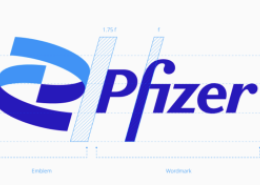Pfizer Receives FDA Approval For A Prior Approval Supplement For EMBEDA® (morphine sulfate and naltrexone hydrochloride) Extended Release Capsules CII
Pfizer Inc. (NYSE: PFE) announced today that the U.S. Food and Drug Administration (FDA) has approved a Prior Approval Supplement for EMBEDA® (morphine sulfate and naltrexone hydrochloride) Extended Release Capsules CII.
The Prior Approval Supplement included an update to the EMBEDA manufacturing process that addressed the pre-specified stability requirement that led to the voluntary recall of EMBEDA from the market in March 2011. Pfizer anticipates product availability in the second quarter of 2014.
About EMBEDA
EMBEDA is indicated for the management of moderate to severe pain when a continuous, around-the-clock opioid analgesic is needed for an extended period of time.
Limitations of Use
· EMBEDA is not for use as an as-needed (prn) analgesic, for pain that is mild or not expected to persist for an extended period of time, for acute pain, for postoperative pain, unless the patient is already receiving chronic opioid therapy prior to surgery, or if the postoperative pain is expected to be moderate to severe and persist for an extended period of time
· EMBEDA 100mg/4mg capsules are only for patients in whom tolerance to an opioid of comparable potency is established.
IMPORTANT SAFETY INFORMATION
BOXED WARNING:
ABUSE POTENTIAL, LIFE-THREATENING RESPIRATORY DEPRESSION, ACCIDENTAL EXPOSURE, and INTERACTION WITH ALCOHOL
Abuse Potential
EMBEDA contains pellets of morphine sulfate, an opioid agonist, with a sequestered core of naltrexone hydrochloride, an opioid receptor antagonist. Morphine sulfate is a Schedule II controlled substance with an abuse liability similar to other opioid agonists, legal or illicit. Assess each patient’s risk for opioid abuse or addiction prior to prescribing EMBEDA. The risk for opioid abuse is increased in patients with a personal or family history of substance abuse (including drug or alcohol abuse or addiction) or mental illness (e.g., major depressive disorder). Routinely monitor all patients receiving EMBEDA for signs of misuse, abuse, and addiction during treatment.
Life-threatening Respiratory Depression
Respiratory depression, including fatal cases, may occur with use of EMBEDA, even when the drug has been used as recommended and not misused or abused. Proper dosing and titration are essential and EMBEDA should only be prescribed by healthcare professionals who are knowledgeable in the use of potent opioids for the management of chronic pain. Monitor for respiratory depression, especially during initiation of EMBEDA or following a dose increase. Instruct patients to swallow EMBEDA capsules whole or to sprinkle the contents of the capsule on applesauce and swallow immediately without chewing. Crushing, dissolving, or chewing the pellets within the capsule can cause rapid release and absorption of a potentially fatal dose of morphine.
Accidental Exposure
Accidental ingestion of EMBEDA, especially in children, can result in a fatal overdose of morphine.
Interaction with Alcohol
The co-ingestion of alcohol with EMBEDA may result in an increase of plasma levels and potentially fatal overdose of morphine. Instruct patients not to consume alcoholic beverages or use prescription or non-prescription products that contain alcohol while on EMBEDA therapy.
Contraindications:EMBEDA is contraindicated in patients with significant respiratory depression, acute or severe bronchial asthma in an unmonitored setting or in the absence of resuscitative equipment, known or suspected paralytic ileus, or hypersensitivity (e.g., anaphylaxis) to morphine or naltrexone.
Abuse Potential:EMBEDA contains morphine, an opioid agonist and a Schedule II controlled substance. Morphine can be abused in a manner similar to other opioid agonists, legal or illicit. Such opioid agonists are sought by drug abusers and people with addiction disorders and are subject to criminal diversion. Consider these risks when prescribing or dispensing EMBEDA where there is concern about increased risks of misuse, abuse, or diversion. Misuse or abuse of EMBEDA by crushing, chewing, snorting or injecting the dissolved product will result in the uncontrolled delivery of the opioid and pose a significant risk that could result in overdose and death, and may also result in release of sufficient naltrexone to precipitate withdrawal in opioid-dependent individuals.
Life Threatening Respiratory Depression:Respiratory depression is the primary risk of EMBEDA and may lead to respiratory arrest and death. Respiratory depression from opioids is manifested by a reduced urge to breathe and a decreased rate of respiration, often associated with a “sighing” pattern of breathing. Carbon dioxide (CO2) retention from opioid-induced respiratory depression can exacerbate the sedating effects of opioids. While serious, life-threatening, or fatal respiratory depression can occur at any time during the use of EMBEDA, the risk is greatest during the initiation of therapy or following a dose increase. Closely monitor patients for respiratory depression when initiating therapy with EMBEDA and following dose increases. Instruct patients against use by individuals other than the patient for whom EMBEDA was prescribed and to keep EMBEDA out of the reach of children, as such inappropriate use may result in fatal respiratory depression.
Accidental Exposure:Accidental ingestion of EMBEDA, especially in children, can result in a fatal overdose of morphine.
Interaction with Alcohol:The co-ingestion of alcohol with EMBEDA can result in an increase of morphine plasma levels and potentially fatal overdose of morphine. Instruct patients not to consume alcoholic beverages or use prescription or non-prescription products containing alcohol while on EMBEDA therapy.
Elderly, Cachectic, and Debilitated Patients:Respiratory depression is more likely to occur in elderly, cachectic, or debilitated patients as they may have altered pharmacokinetics due to poor fat stores, muscle wasting, or altered clearance compared to younger, healthier patients. Therefore, monitor such patients closely, particularly when initiating and titrating EMBEDA and when EMBEDA is given concomitantly with other drugs that depress respiration.
Use with Chronic Pulmonary Disease:Monitor patients with significant chronic obstructive pulmonary disease or cor pulmonale, and patients having a substantially decreased respiratory reserve, hypoxia, hypercapnia, or pre-existing respiratory depression for respiratory depression, as in these patients, even usual therapeutic doses of EMBEDA may decrease respiratory drive to the point of apnea. Consider the use of alternative non-opioid analgesics in these patients if possible.
Hypotensive Effects:EMBEDA may cause severe hypotension including orthostatic hypotension and syncope in ambulatory patients. There is an increased risk in patients whose ability to maintain blood pressure has already been compromised by a reduced blood volume or concurrent administration of certain CNS depressant drugs. Monitor these patients for signs of hypotension after initiating or titrating the dose of EMBEDA. In patients with circulatory shock, EMBEDA may cause vasodilation that can further reduce cardiac output and blood pressure. Avoid the use of EMBEDA in patients with circulatory shock
Use with Head Injury or Increased Intracranial Pressure:Monitor patients taking EMBEDA who may be susceptible to the intracranial effects of CO2 retention for signs of sedation and respiratory depression as EMBEDA may reduce respiratory drive and the resultant CO2 retention can further increase intracranial pressure.Avoid the use of EMBEDA in patients with impaired consciousness or coma.
Use with Gastrointestinal Conditions:EMBEDA is contraindicated in patients with paralytic ileus. Avoid the use of EMBEDA in patients with other GI obstruction. The morphine in EMBEDA may cause spasm of the sphincter of Oddi. Monitor patients with biliary tract disease, including acute pancreatitis, for worsening symptoms. Opioids may cause increases in the serum amylase.
Use with Convulsive or Seizure Disorders:The morphine in EMBEDA may aggravate convulsions in patients with convulsive disorders, and may induce or aggravate seizures in some clinical settings.
Avoidance of Withdrawal:Avoid the use of mixed agonist/antagonist analgesics in patients who have received or are receiving a course of therapy with an opioid agonist analgesic. Mixed agonists/antagonists analgesics may reduce the analgesic effect and/or may precipitate withdrawal symptoms. Consuming crushed, chewed or dissolved EMBEDA capsules can release sufficient naltrexone to precipitate withdrawal in opioid –dependent individuals, which usually appear within 5 minutes and can last up to 48 hours. When discontinuing EMBEDA, gradually taper the dose and do not abruptly discontinue.
Driving and Operating Machinery:EMBEDA may impair the mental or physical abilities needed to perform potentially hazardous activities such as driving a car or operating machinery. Warn patients not to drive or operate dangerous machinery unless they are tolerant to the effects of EMBEDA and know how they will react to the medication.
Administration Considerations:Individualize dosing based on patient’s prior analgesic treatment experience, and titrate as needed to provide adequate analgesia and minimize adverse reactions. When EMBEDA is the first opioid analgesic, initiate EMBEDA therapy with the 20 mg/0.8 mg capsule. Instruct patients to swallow EMBEDA capsules intact, or to sprinkle the capsule contents on applesauce and immediately swallow without chewing.
Drug Interactions
· Concomitant use of alcohol with EMBEDA can result in an increase of morphine plasma levels and potentially fatal overdose of morphine.
· Concurrent use of EMBEDA and other central nervous system depressants (e.g. sedatives, hypnotics, general anesthetics, antiemetics, phenothiazines, other tranquilizers, and alcohol) can increase the risk of respiratory depression, hypotension, and profound sedation or coma.
· Mixed agonist/antagonist analgesics (i.e., pentazocine, nalbuphine, butorphanol) may reduce the analgesic effect of EMBEDA and/or may precipitate withdrawal symptoms in these patients. Avoid the use of agonist/antagonist analgesics in patients receiving EMBEDA.
· Opioids may enhance the neuromuscular blocking action of skeletal relaxants and produce an increased degree of respiratory depression.
· The effects of morphine may be potentiated by MAOIs. MAOIs have been reported to potentiate the effects of morphine anxiety, confusion, and significant depression of respiration or coma. EMBEDA should not be used in patients taking MAOIs or within 14 days of stopping such treatment.
· Cimetidine can potentiate morphine-induced respiratory depression. There is a report of confusion and severe respiratory depression when a patient undergoing hemodialysis was concurrently administered morphine and cimetidine.
· Morphine can reduce the efficacy of diuretics by inducing the release of antidiuretic hormone. Morphine may also lead to acute retention of urine by causing spasm of the sphincter of the bladder, particularly in men with enlarged prostates.
· Anticholinergics or other drugs with anticholinergic activity when used concurrently with opioid analgesics may result in increased risk of urinary retention and/or severe constipation, which may lead to paralytic ileus.
· PGP inhibitors (e.g. quinidine) may increase the absorption/exposure of morphine by about two-fold.
For EMBEDA Full Prescribing Information please visit www.embeda.com
Pfizer Inc.: Working together for a healthier world™
At Pfizer, we apply science and our global resources to bring therapies to people that extend and significantly improve their lives. We strive to set the standard for quality, safety and value in the discovery, development and manufacturing of health care products. Our global portfolio includes medicines and vaccines as well as many of the world's best-known consumer health care products. Every day, Pfizer colleagues work across developed and emerging markets to advance wellness, prevention, treatments and cures that challenge the most feared diseases of our time. Consistent with our responsibility as one of the world's premier innovative biopharmaceutical companies, we collaborate with health care providers, governments and local communities to support and expand access to reliable, affordable health care around the world. For more than 150 years, Pfizer has worked to make a difference for all who rely on us. To learn more, please visit us atwww.pfizer.com.








